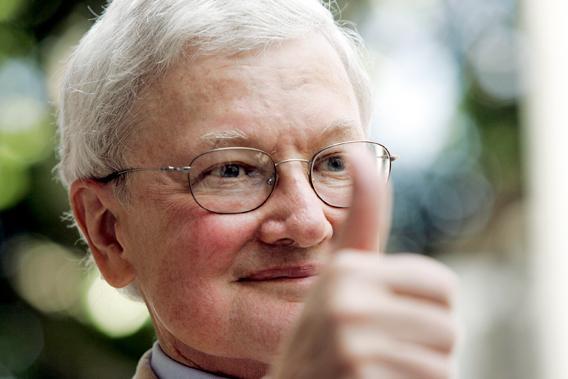When I first started attending screenings in Chicago, after moving here in 2001, I was usually too intimidated to speak with Roger Ebert. Not that he was anything but welcoming, even to newcomers like me. Even from a distance, I appreciated how screenings were made better simply by his being there. Before his health problems, Roger used to fill the screening room with spirited conversation before the films started, and when something struck him as funny, his laugh was infectious. Even if it was something I didn’t find all that amusing, it was hard not to take pleasure in the pleasure he was taking.
In the many remembrances and tributes to Roger that will pour out from those in our shared trade, most will talk about how Roger’s work—whether in print or on TV—inspired their authors to pursue film criticism, how it got them to consider more deeply the movies they saw and what they meant. I’m glad I got the chance to tell him that personally once. But he was an inspiration in other ways in recent years, with his superhuman persistence in the face of adversity. I remember a bad day at work that stretched into a long, grumpy evening thanks to an up-to-the-edge-of-deadline screening of some second-rate horror film. The things I have to do for my job, I thought. Then in came Roger, slowly and with assistance, and my own notion of dedication to the profession seemed pretty petty.
There’s one memory in particular that will always stick with me. One year, Roger hosted a screening of Akira Kurosawa’s Ikiru as part of the Chicago International Film Festival. His introduction was typically knowledgeable and erudite, delivered in that voice I’d heard since I started watching Sneak Previews as a kid. Then he called it one of the few movies he knew that could “make you a better person.” It’s a bold claim to make for any movie, even Ikiru. But he meant it.
Roger understood how much movies matter, how a good one can burrow into our souls, and he never let anyone forget it. It’s hard to imagine him no longer out there watching, thinking, and writing about movies. But it’s comforting to know that he changed the way we watch, think, and write about movies forever—and for the better.
